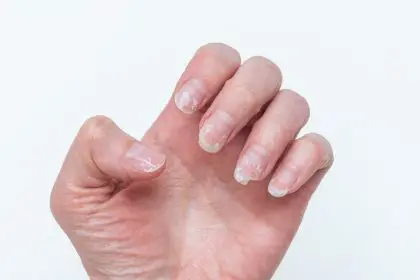Eyesight is one of our most important senses, allowing us to perceive and interact with the world around us. Yet, many of us take our vision for granted, often neglecting the care our eyes need. While some vision problems are unavoidable due to genetics or age, many issues can be prevented by adopting healthier habits. Unfortunately, certain common behaviors can significantly harm our eyesight over time. In this article, we will explore five bad habits that harm eyesight health you should know and provide tips on how to avoid them.
1. Excessive screen time
In today’s digital age, it’s almost impossible to avoid screens. We use computers for work, smartphones for communication and televisions for entertainment. However, prolonged screen time can strain your eyes, leading to a condition known as digital eye strain or computer vision syndrome. Symptoms include dry eyes, blurred vision, headaches and neck pain.
How to avoid:
- Follow the 20-20-20 rule: Every 20 minutes, take a 20-second break and look at something 20 feet away.
- Adjust your screen brightness to match the lighting in your environment.
- Use blue light filters on your devices to reduce strain.
2. Not wearing sunglasses
Ultraviolet (UV) rays from the sun can cause serious damage to your eyes, including cataracts and macular degeneration. Despite this, many people neglect to wear sunglasses when outdoors. This bad habit can have long-term detrimental effects on your vision.
How to avoid:
- Always wear sunglasses that block 100% of UVA and UVB rays.
- Consider wearing a wide-brimmed hat for added protection.
- Remember to wear sunglasses even on cloudy days, as UV rays can penetrate clouds.
3. Poor diet
What you eat has a significant impact on your eye health. Diets lacking essential nutrients, such as vitamins A, C, and E, as well as omega-3 fatty acids, can lead to vision problems. For example, vitamin A deficiency can cause night blindness, while antioxidants help prevent age-related macular degeneration.
How to avoid:
- Incorporate a variety of fruits and vegetables into your diet, especially leafy greens like spinach and kale.
- Eat foods rich in omega-3 fatty acids, such as salmon, flaxseeds and walnuts.
- Consider taking a daily multivitamin to ensure you’re getting the necessary nutrients.
4. Smoking
Smoking is harmful to almost every organ in the body, including the eyes. Smokers are at a higher risk of developing cataracts, macular degeneration and uveitis. The toxic chemicals in cigarettes can damage the delicate tissues in the eyes, leading to severe vision problems.
How to avoid:
- Seek support to quit smoking, whether through counseling, support groups or medication.
- Replace smoking with healthier habits, like exercise or hobbies.
- Be aware of the increased risks and stay motivated to protect your vision.
5. Ignoring regular eye exams
Many people skip regular eye exams, assuming their vision is fine if they aren’t experiencing any noticeable problems. However, many eye conditions develop slowly and without obvious symptoms. Regular eye exams are crucial for early detection and treatment of issues like glaucoma, diabetic retinopathy and macular degeneration.
How to avoid:
- Schedule a comprehensive eye exam at least once every two years, or more frequently if advised by your doctor.
- Pay attention to any changes in your vision and report them to your eye care professional.
- Encourage family members to get regular eye exams, as many conditions are hereditary.
Prioritizing your eyesight health
Protecting your eyesight requires more than just good luck; it demands conscious effort and consistent care. By avoiding these five bad habits that harm eyesight health, you can take proactive steps to preserve your vision for years to come. Whether it’s reducing screen time, wearing sunglasses, eating a balanced diet, quitting smoking or keeping up with regular eye exams, each positive change contributes significantly to better eye health.
Reducing screen time can alleviate digital eye strain, ensuring your eyes are not overworked. Wearing sunglasses shields your eyes from harmful UV rays, protecting you from conditions like cataracts and macular degeneration. A balanced diet rich in essential nutrients supports overall eye health, preventing deficiencies that could lead to serious vision problems. Quitting smoking eliminates exposure to toxic chemicals that can damage your eyes, while regular eye exams allow for early detection and treatment of potential issues.
Remember, your eyes are your windows to the world — take care of them diligently to ensure a bright and clear future. Simple, consistent habits can make a profound difference. Prioritize your eyesight health today and enjoy the benefits of clear vision for a lifetime.
This story was created using AI technology.

















